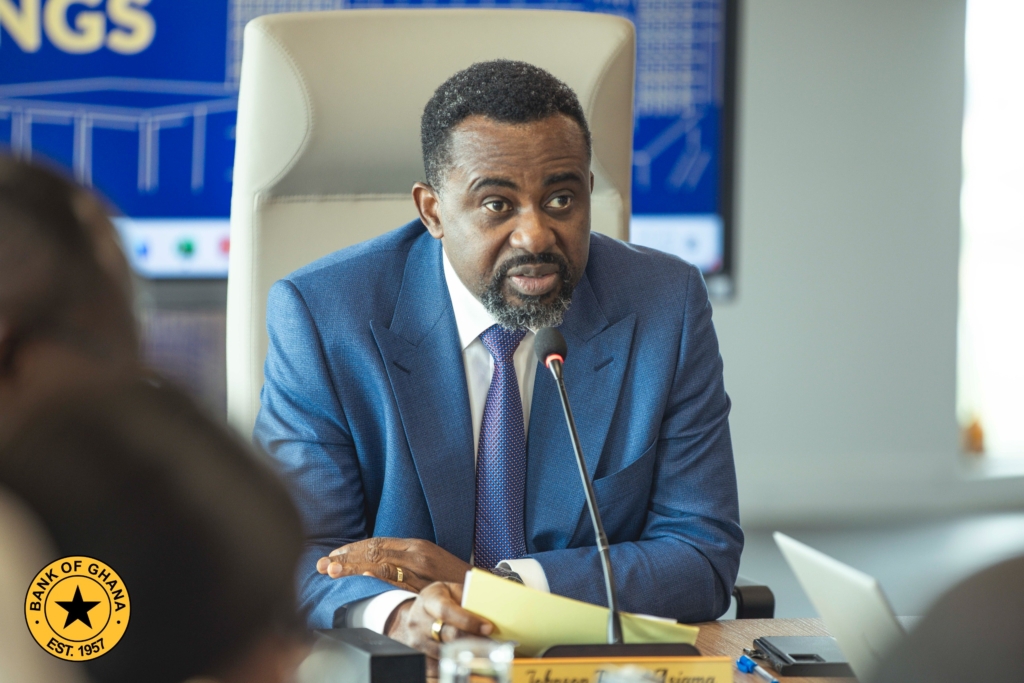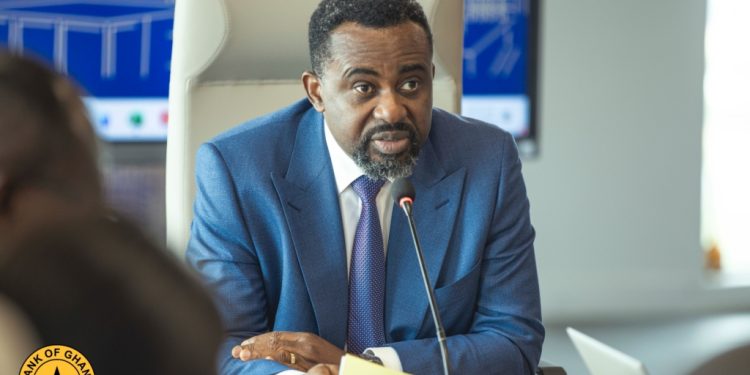
Governor of Bank of Ghana, Dr. Johnson Asiama
The Governor of the Bank of Ghana, Dr. Johnson Asiama, has admitted that the path ahead in restoring macroeconomic stability remains complex and fraught with risks, both global and domestic.
According to him, this underscores the importance of today’s Monetary Policy Committee (MPC)meeting and the decisions they are set to make.
Giving opening remarks ahead of the three-day MPC meeting, Dr. Asiama said since its last meeting, there had been further moderation in inflation, citing the Ghana Statistical Service’s April 2025 inflation.
He, however, noted that the inflation rate is still well above the medium-term target band of 8 ± 2%, breaching the upper consultation band of 19%.
In March 2025, the MPC responded decisively to the inflation outlook by raising the policy rate by 100 basis points to 28%.
The Governor said preliminary evidence suggests this action has contributed to dampening inflation momentum.
“Importantly, the cedi has appreciated sharply by nearly 19% between April and May 2025, helping to ease imported inflation pressures and restore public confidence. The appreciation reflects a combination of factors, including prudent monetary policy, improved market sentiment, and external sector gains”, he explained.
“We are also seeing encouraging signs of macroeconomic progress. Ghana has reached a Staff-Level Agreement with the IMF on the Fourth Review of the ECF [Economic Credit Facility] Programme, and although some prior actions remain outstanding, the trajectory is clearly positive. The recent S&P upgrade of Ghana’s sovereign rating from Selective Default to CCC+ further affirms this progress. External reserves have strengthened, the trade balance has improved, and consumer and business confidence indices are rising steadily”, he added.
The Governor, however, said significant challenges persist, mentioning the inflation outlook, while improving, remains vulnerable to second-round effects, food supply constraints, especially from northern Ghana and the Sahel and external price shocks, particularly given volatile global commodity markets.
He pointed out that geopolitical tensions and evolving global trade dynamics, including the recent US-led tariff disputes, have heightened market uncertainty and could affect commodity prices, exchange rates, and financial flows in emerging markets including Ghana.
DISCLAIMER: The Views, Comments, Opinions, Contributions and Statements made by Readers and Contributors on this platform do not necessarily represent the views or policy of Multimedia Group Limited.
DISCLAIMER: The Views, Comments, Opinions, Contributions and Statements made by Readers and Contributors on this platform do not necessarily represent the views or policy of Multimedia Group Limited.
- President Commissions 36.5 Million Dollars Hospital In The Tain District
- You Will Not Go Free For Killing An Hard Working MP – Akufo-Addo To MP’s Killer
- I Will Lead You To Victory – Ato Forson Assures NDC Supporters
Visit Our Social Media for More




